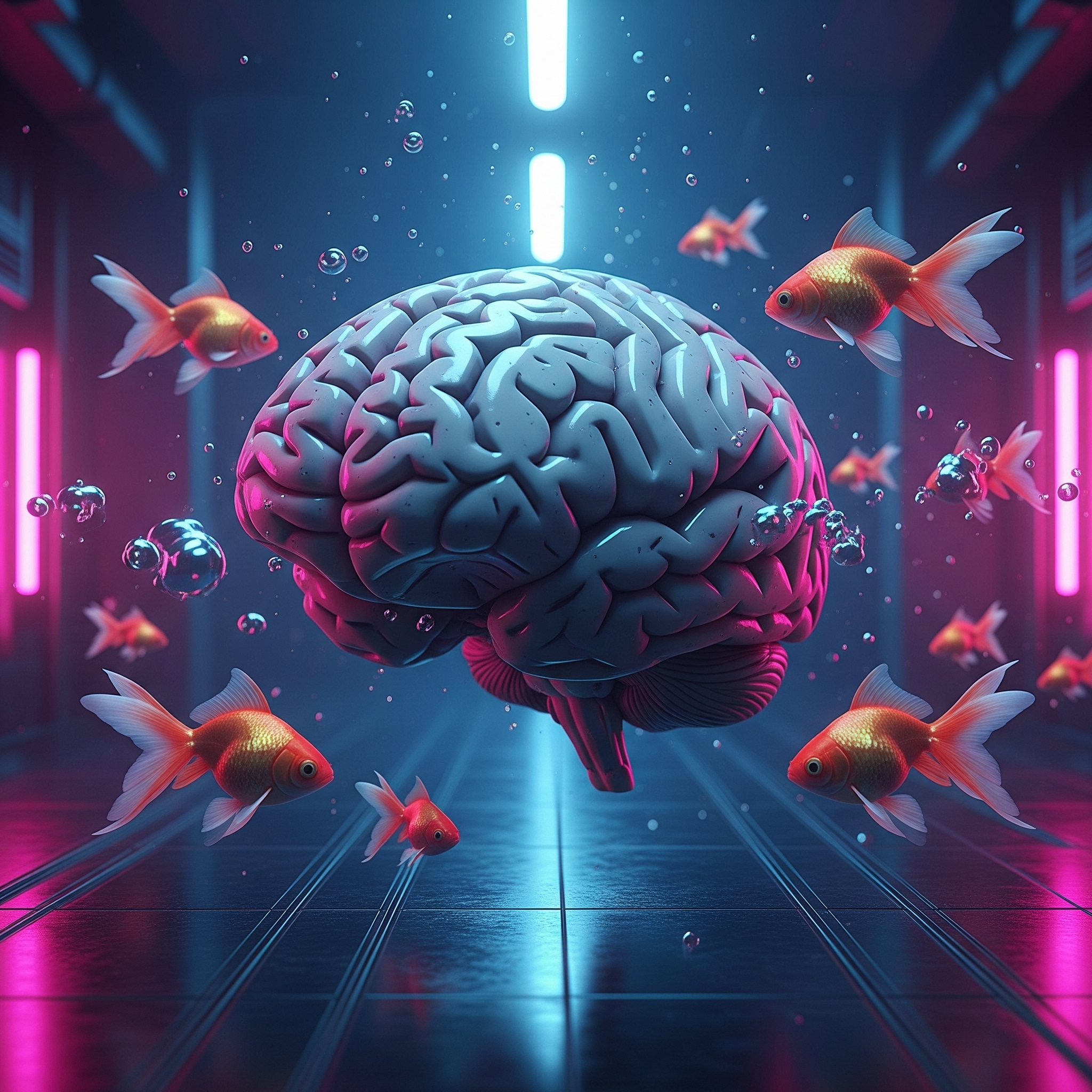Is AI making You dumber?
Published on May 22, 2024 • Vojta Baránek

AI: Your Brain’s New Off-Switch?
Sure, the endless scroll of bite-sized content has already done a number on our collective attention spans. But why stop there? Today, we’re peeking at the delightful possibility that our beloved Artificial Intelligence, the tireless digital servant, might just be encouraging our brains to take a permanent siesta.
A rather pointed study, “Exploring the Cognitive Implications of Excessive AI Reliance Among University Students” has emerged. And its findings, while not exactly shocking to a seasoned cynic, are worth noting if you’re still fond of using that grey matter between your ears for more than just keeping your headphones apart.
The Convenience Trap: Thinking Optional?
We’ve all done it. Why wrestle with a complex problem, draft an original thought, or even remember a basic fact when an AI can cough it up faster than you can say “intellectual outsourcing”? It’s seductively easy. But, as the study suggests, this ease comes at a cost. It seems that when we consistently let AI do the heavy cognitive lifting, our own mental muscles begin to, shall we say, atrophy. We’re not just aiming for the attention span of a goldfish anymore; we might be aspiring to its entire intellectual depth.
The researchers grimly noted that “students who frequently used AI as a shortcut, rather than a supplementary tool, demonstrated notably lower scores in tasks requiring deep cognitive processing.” In essence, relying on AI as a crutch rather than a tool appears to have consequences.
Key concerns highlighted:
-
Cognitive Offloading: The study points to the “‘use it or lose it’ principle,” suggesting that cognitive functions may indeed diminish “when AI consistently offloads mental effort.” Your brain, apparently, doesn’t appreciate being benched.
-
Memory and Critical Thinking Deficits: A “negative correlation between high AI usage for academic tasks and students’ performance in memory recall and critical thinking assessments” was observed. So, remembering things and thinking critically about them? Yeah, those might be fading skills.
-
Reduced Deep Processing: If AI is always providing the answers, the need for individuals to engage in the deeper cognitive work that solidifies understanding and builds critical neural pathways is lessened.
What the Study Actually Says (The Non-Sarcastic Bit)
The study itself offers some sobering observations. The researchers state, “while AI can enhance productivity, its unmonitored use might inadvertently lead to a decline in essential cognitive skills.” This isn’t about demonizing AI, but rather about understanding the implications of its unchecked integration into tasks that traditionally required our own mental exertion.
The core message from the research seems to be:
-
Unmonitored reliance is risky: Using AI without engaging one’s own cognitive processes can lead to skill degradation.
-
Supplementary, not substitutional: AI’s strength lies in augmenting human intellect, not replacing it wholesale for tasks requiring thought.
-
Active engagement is key: The human brain needs to remain an active participant, not a passive recipient, of information and problem-solving.
Conclusion: Navigating the AI Era Without Losing Your Mind
So, are we destined to become glassy-eyed consumers of AI-generated content, our own intellects slowly fading? Not necessarily. AI is a tool, and like any powerful tool, its impact depends heavily on how we choose to wield it.
Here’s some actual, practical advice – a gift to your beleaguered brain cells:
Think first, then consult AI.
Before you reflexively delegate a task to an AI, make a genuine attempt to tackle it yourself. Engage your memory, flex your critical thinking, try to formulate your own ideas. Use AI as a collaborator, a research assistant, or a tool to refine your work, not as a replacement for the cognitive process itself.
The goal isn’t to shun AI, but to integrate it wisely, ensuring it serves as a scaffold for our thinking, not a recliner. Otherwise, we might find ourselves wonderfully efficient, yet utterly clueless. And that’s a future even I find a bit too bleak for comfort.
One Last Glimmer of Hope (or a Shameless Capitalist Pivot)
Look, if all this doom-and-gloom about our collective brainpower circling the drain has you reaching for the emergency chocolate (or worse, asking AI how to feel about it), take a shallow, AI-assisted breath.
Because, if my sterling advice about actually using your brain falls on deaf ears, and we all end up as highly proficient goldfish, well, we aren’t entirely without a backup plan. For some time now, we’ve been quietly tinkering away in our dimly lit labs (powered by sarcasm and lukewarm coffee) on a little venture.
So, if all else is truly lost, and your cognitive skills have packed their tiny bags and headed for the hills, remember the name: ProxyQB. It’s a venture currently in the works, aiming to (you guessed it) “improve” cognitive skills.
Stay sharp out there. Or don’t. We’ll have a product for that.
Project Feeling More 'Abstract Art' Than Functional App?
If your codebase looks like a Jackson Pollock painting done by a Roomba, it might be time for ProRocketeers. Our developers value verifiable logic over "vibe coding," ensuring your digital masterpiece actually does something other than crash.